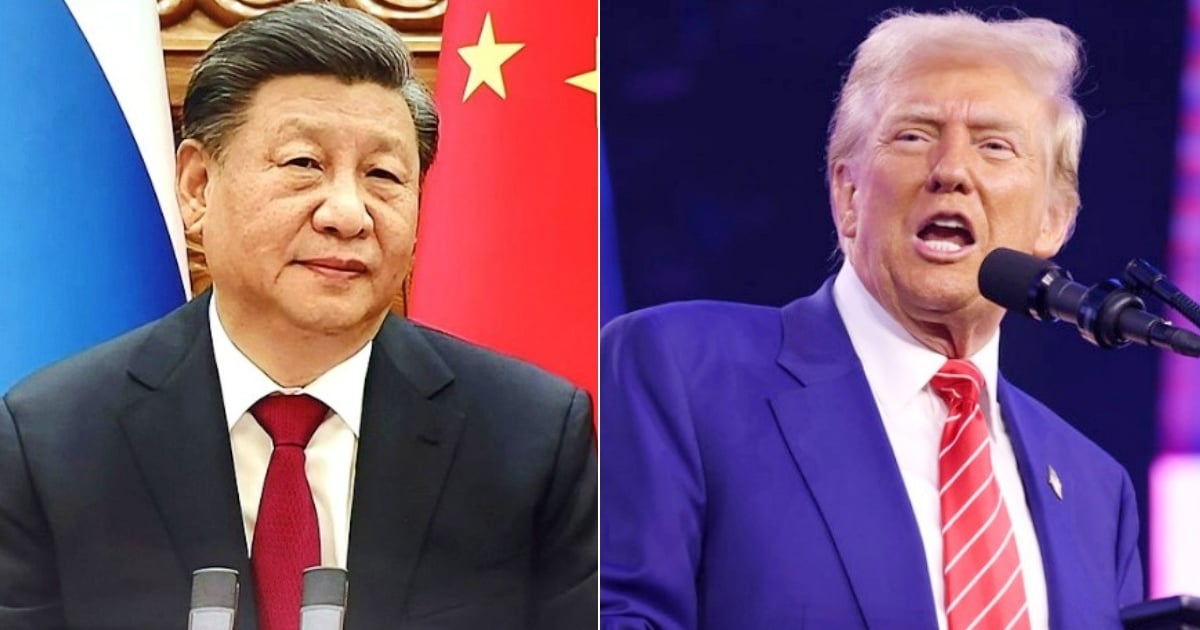The trade standoff between the United States and China has intensified, as Beijing imposes tariffs on American products in retaliation against recent actions by the Trump administration. On Tuesday, China's Ministry of Finance announced new duties on certain U.S. imports, including crude oil, agricultural machinery, and liquefied natural gas.
These levies are a direct response to the 10% tariffs that Washington placed on Chinese goods entering the U.S. market. China's retaliatory tariffs include a 15% charge on certain coal types and liquefied natural gas, alongside a 10% levy on crude oil, agricultural machinery, large-displacement vehicles, and pickup trucks. These measures are set to take effect on February 10.
Additionally, China's Ministry of Commerce and customs authorities have enforced new export controls on dozens of metallurgical products and related technologies, including tungsten, a crucial mineral in industrial and defense applications, and tellurium, used in solar cell production. "China is the leading producer of tungsten concentrates, accounting for over 80% of global output," according to U.S. government estimates.
Beijing has also added two American companies, the biotechnology firm Illumina and fashion retailer PVH Group (owner of Calvin Klein and Tommy Hilfiger), to its list of "unreliable entities." The Chinese government claims these companies "violated normal market trade principles."
China Investigates Google and Appeals to WTO
In a separate announcement, China's State Administration for Market Regulation disclosed the initiation of an investigation into Google for alleged antitrust violations. Although Google's search engine does not operate in China, the company still conducts certain activities within the country.
Beijing has ramped up its stance against U.S. measures by escalating the dispute to the World Trade Organization (WTO). China's Ministry of Commerce stated, "U.S. practices severely undermine the rules-based multilateral trading system, economic and trade cooperation between China and the United States, and the stability of global industrial and supply chains."
Background and Responses
This latest round of trade tensions follows the Trump administration's imposition of a 10% tariff on Chinese imports, a policy announced the previous Saturday. Beijing swiftly responded with a condemnatory statement, promising to "resolutely defend its rights."
The White House's actions are part of a broader strategy affecting Mexico and Canada, whom Trump blames for the illegal immigration crisis and fentanyl trafficking into the United States. However, after talks with leaders of these nations, Trump agreed to "immediately pause" tariffs on Mexico and Canada.
Trump also expressed his intention to speak with Chinese President Xi Jinping within the next 24 hours, though Beijing has yet to confirm any such call.
Fentanyl Factor and Potential for an Agreement
The trade of fentanyl has been another key element in negotiations between the two countries. U.S. authorities suspect various Chinese entities supply the chemical precursors used to manufacture this drug, which is then processed in Mexico and the United States. Beijing, on its part, claims to have taken steps to curb the export of these products.
Despite the escalating tensions, the 10% tariffs imposed by Trump are lower than the 60% duties he promised during his campaign, suggesting potential room for negotiation. The U.S. President has also indicated he might reconsider these tariffs if both nations can reach a broader agreement on trade and global security.
Economic Impact of China's Measures on the U.S.
China's countermeasures appear designed to target specific sectors of the U.S. economy without causing widespread disruption. For instance, China is a relatively minor importer of U.S. liquefied natural gas, purchasing just 2.3% of the total exported by the U.S. Similarly, the American automotive sector is unlikely to suffer greatly, as China's primary car imports come from Europe and Japan. This suggests that Beijing may be using these actions as a pressure tactic ahead of future negotiations.
The ongoing conflict between China and the United States resembles the 2018 trade war during Trump's first term when both nations imposed tariffs on hundreds of billions of dollars worth of goods. However, the Biden administration has maintained many of these tariffs and even increased them in key sectors like semiconductors and electric vehicles.
Despite these tensions, the economies of both countries remain deeply intertwined. During the first 11 months of the last year, China exported goods worth $401 billion to the United States, while American imports to China totaled $131 billion. According to Laura Bicker, a BBC correspondent in Beijing, "these calculated measures may just be an opening salvo from Beijing, a way to gain some negotiating leverage before any talks, but there's still a risk that it could mark the start of a tit-for-tat trade war."
The outlook remains uncertain, but it's clear that U.S.-China relations will continue to be marked by economic and technological competition in the coming months.
Key Questions on U.S.-China Trade Tensions
What products are affected by China's new tariffs?
China's new tariffs target U.S. imports such as crude oil, agricultural machinery, liquefied natural gas, and specific types of coal, among other products.
How has the U.S. responded to these tariffs?
The U.S. has not yet issued a direct response to China's tariffs, but President Trump has expressed a willingness to negotiate and potentially reconsider tariffs if an agreement is reached.
What role does fentanyl play in U.S.-China trade relations?
Fentanyl trade is a significant issue in U.S.-China negotiations, as the U.S. accuses Chinese entities of supplying precursors for the drug, while China claims to have enacted measures to curb exports of these substances.
